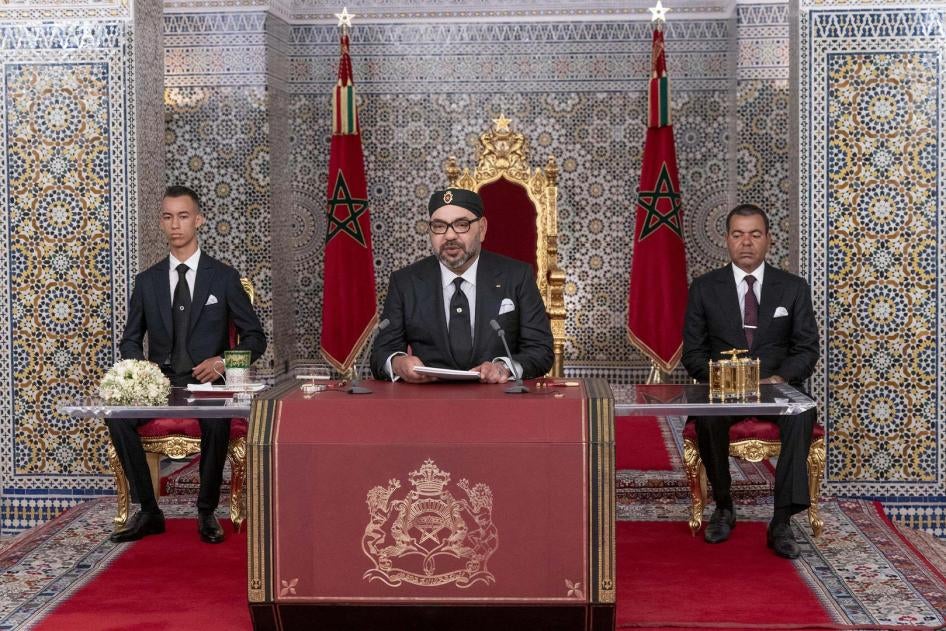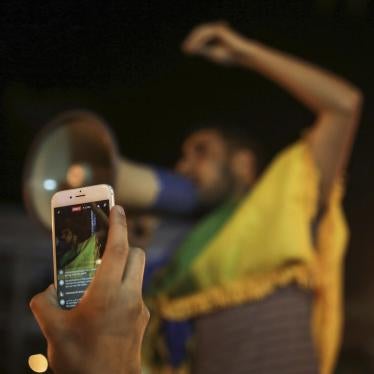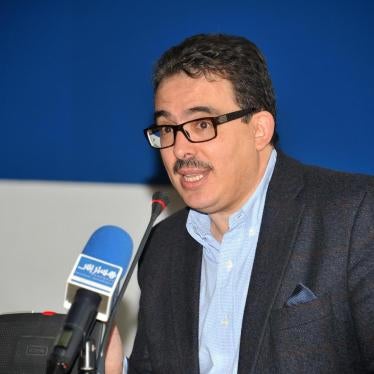It's the story of a well-meaning king who embarks on reforms, doesn't follow them through, and ends up falling in the same traps he wanted to eliminate. That’s how Mohammed VI’s reign, which marked its 20th anniversary on July 30, could be summarized.
The man who started off as the "king of the poor,” modest and concerned about the destitute, became an extremely rich monarch reportedly flaunting his wealth while Moroccans risk their lives to emigrate en masse to Europe. The 2011 Constitution, which the king intended to be "democratic,” nevertheless enabled the leader of a minority political party, thanks to his close links with the Palace, to topple a freely elected Prime Minister and majority party leader.
This pattern of setbacks and false pretenses is also very noticeable in the field of human rights.
When Mohammed VI came to power in 1999, he immediately expressed a desire to turn the page on the "years of lead.” During the 38-year reign of Hassan II, his father and predecessor, opponents of the monarchy paid for their sins, real or imaginary, in secret prisons scattered across Morocco, sometimes in horrendous conditions that defied the imagination.
So the world applauded when the young king created the Equity and Reconciliation Commission (IER) in 2004. Inspired by the South African post-apartheid experience, the aim was to shine a light on torture, abuses and other forms of injustice committed under Hassan II, compensate the victims… And also deliver justice? No.
Before receiving reparation checks (a little more than USD 100 million in total, paid by the state), the victims testified before the cameras, recounting their ordeal during poignant, public hearings. But that was the limit of the exercise, as they were not allowed to name their torturers. As a result, although the IER investigated around 16,000 cases, no one was prosecuted. And yesterday's torturers, just like those who gave them their orders, continued enjoying their peaceful retirement.
Is this an acceptable compromise, a simple “modality” of a process that will enable Moroccans to "reconcile" before turning the page and moving forward? That was the official version. Another way of seeing the situation is that once impunity is established, nothing can stop the abuses of the past from occurring again.
The IER organizers, under the leadership of the late Driss Benzekri, himself a former political prisoner, had anticipated that. That is why, in parallel with the process of hearings and compensation, they published a series of recommendations to the state aiming to put an end to abuses once and for all: an end to "verbal" orders to use force, transparency in the security decision-making process (in order to identify those who issued the orders at all levels), and an obligation on every member of the police force to report any crime they witness to the justice system, even if it was committed by their superiors. But 12 years after Benzekri's death, none of these key recommendations has been seriously implemented.
If they had been, and if the perpetrators of the past had paid for their crimes, would the activists of the Hirak — a social protest movement that shook the Rif mountains — have been tortured in police detention in 2018? Would they have been coerced, by force or by ruse, to sign false confessions on the basis of which courts sentenced them to up to 20 years in prison? Probably not.
If impunity hadn't become a dogma, would the king himself have felt obliged to let the security forces off the hook when numerous reports, including some by Moroccan state bodies, accused them of violence against protesters in Al Hoceima, the main city of the Rif? Probably not.
That is how a reform process launched in good faith lost its way. Today, nothing can stop Morocco under Mohammed VI from falling into the same traps as under Hassan II. Probably not on the same scale, but the dynamics are the same: police violence, impunity, unfair trials, heavy sentences. There is no guarantee that the speed of abuses will not accelerate. "Turn the page on the past?" If that was the intention, it has been a failure. Morocco's past is catching up.
The same dynamics are at play when it comes to press freedom. At the start of Mohammed VI's reign, it was breathtaking. The shortcomings of the monarchy, questioning Islam, even interviews with the leader of Polisario (the self-determination movement for the Western Sahara, a territory that Morocco considered its own). The young media at the time were not deterred by any of these taboos.
But over time, history became more complicated. Seizures, the imprisonment of journalists, unfair trials resulting in exorbitant damages, and advertisement boycotts orchestrated by the Palace all multiplied over the years. Today, as a result of intimidation and self-censorship (in 2016, a journalist was prosecuted simply for using the expression "Western Sahara"— which he denied doing), the Moroccan press is a shadow of its former self.
In this assessment, the state, carried away by its reformist rhetoric, sees only recriminations and "nihilism.” Didn't the government congratulate itself when a new press code "without prison sentences" was adopted in 2016, despite the fact that journalists are still imprisoned under the criminal code, and ordinary citizens, guilty of publishing dissident messages on Facebook, find themselves behind bars?
The rights of women, a major component of Mohammed VI's reform work, have not suffered such a stark setback. While stopping short of raising them to the same level as men (inequality between the sexes persists, particularly with regard to inheritance), a historic reform enacted by the king in 2004 granted Moroccan women the advanced rights that they enjoy today.
One example is the increase of the minimum age of marriage from 15 to 18 years, except in situations of "exemption" decided by a judge at the request of the family of a minor girl. In 2018, 40,000 such exemptions were granted, amounting to almost 20 per cent of marriages recorded in Morocco during the year. The Justice Minister himself reported "an alarming increase" of this phenomenon. Yet another illustration of the principle that when it comes to reforms, gaps are always likely to widen.
During this period of evaluation, commentators have also highlighted Morocco’s economic progress under Mohammed VI and its successes in terms of infrastructure or diplomacy. They also remark that the kingdom has emerged relatively well from the "Arab spring" sequence, avoiding the revolutions and bloodsheds that shook its neighbors.
But should these successes mask, or even relativize, the setbacks in terms of rights and liberties? Twenty years after Mohammed VI was crowned, it has become routine for international human rights organizations to publish reports painting a dark picture of the situation in Morocco. It has also become customary for the government to denounce these reports as "biased" and "anti-Morocco.” This rhetoric is reminiscent of those of the worst rights violators in the Arab world, such as Abdelfattah Al-Sissi's Egypt and Mohammed bin Salman's Saudi Arabia. Is Morocco really the "Arab exception"? Less and less, if truth be told.








